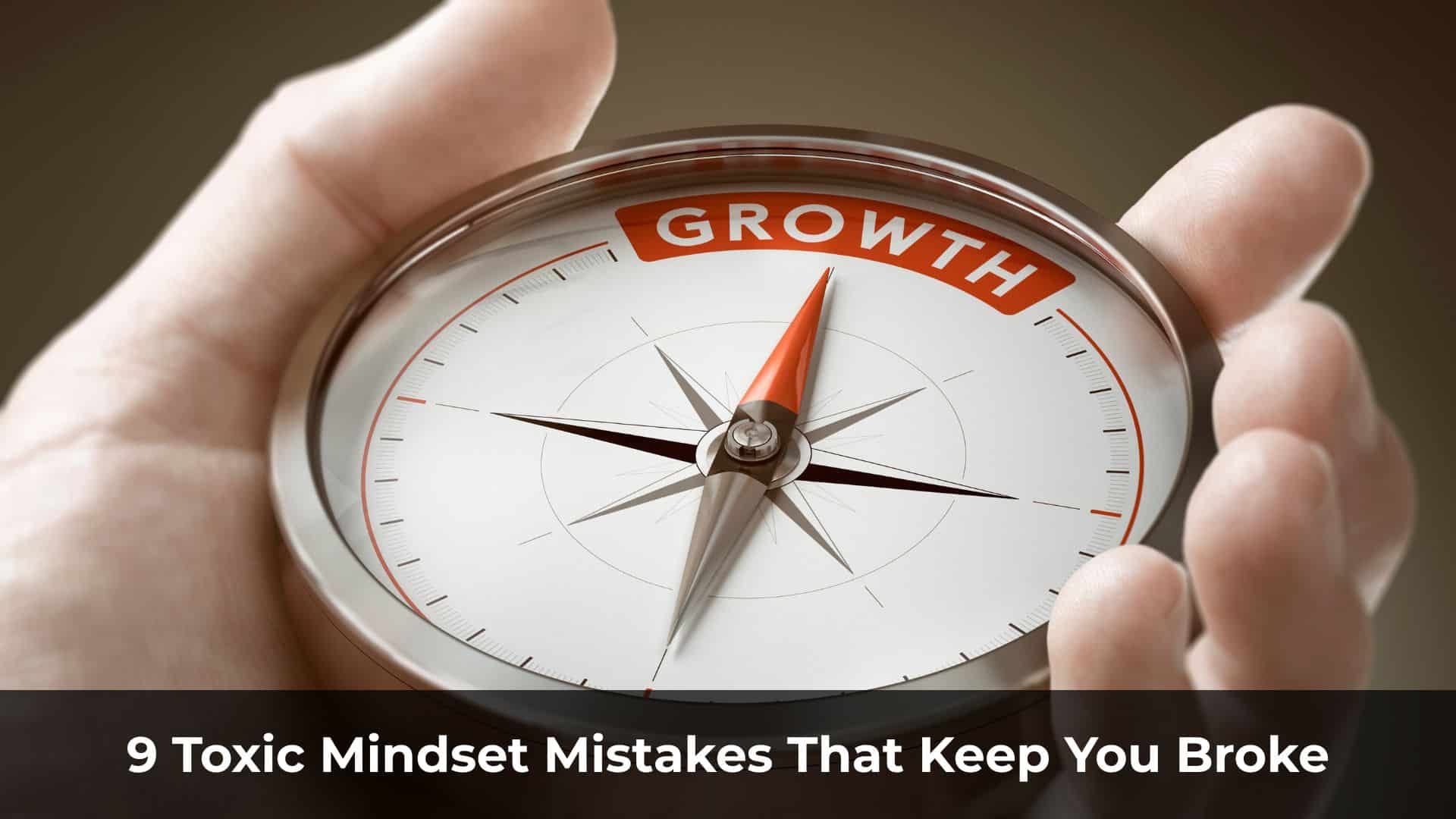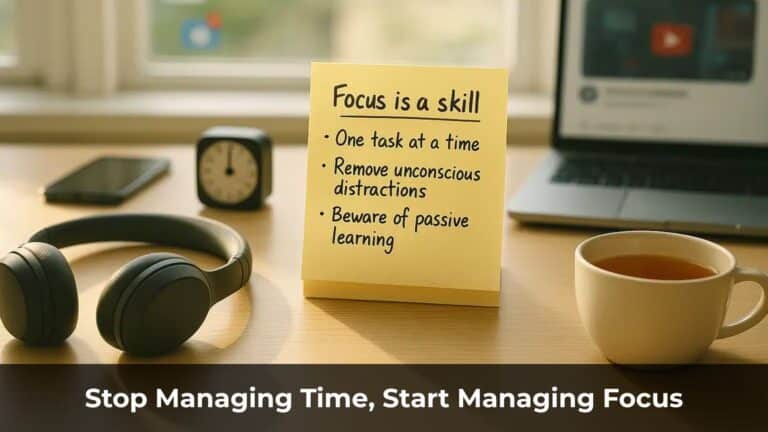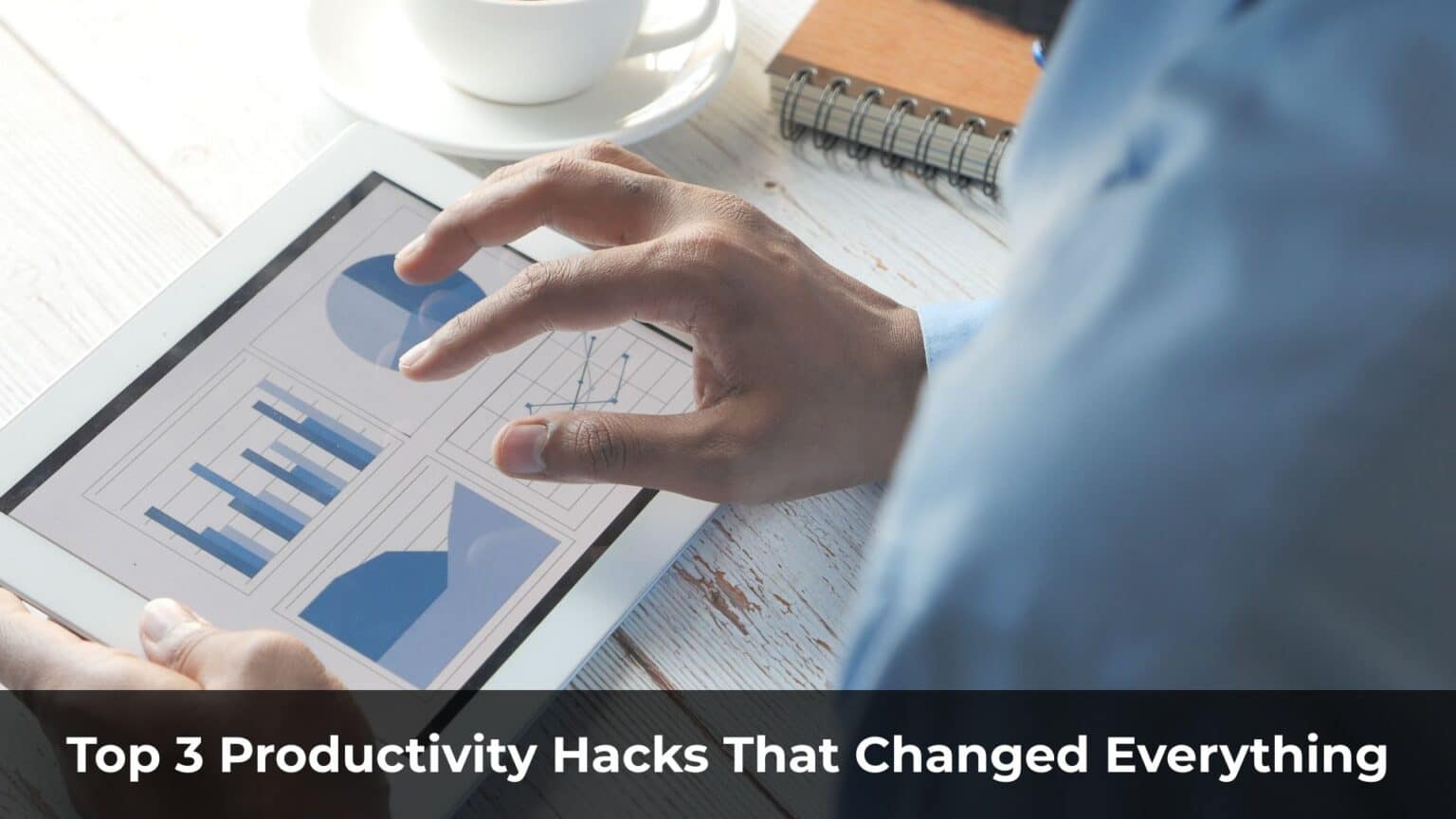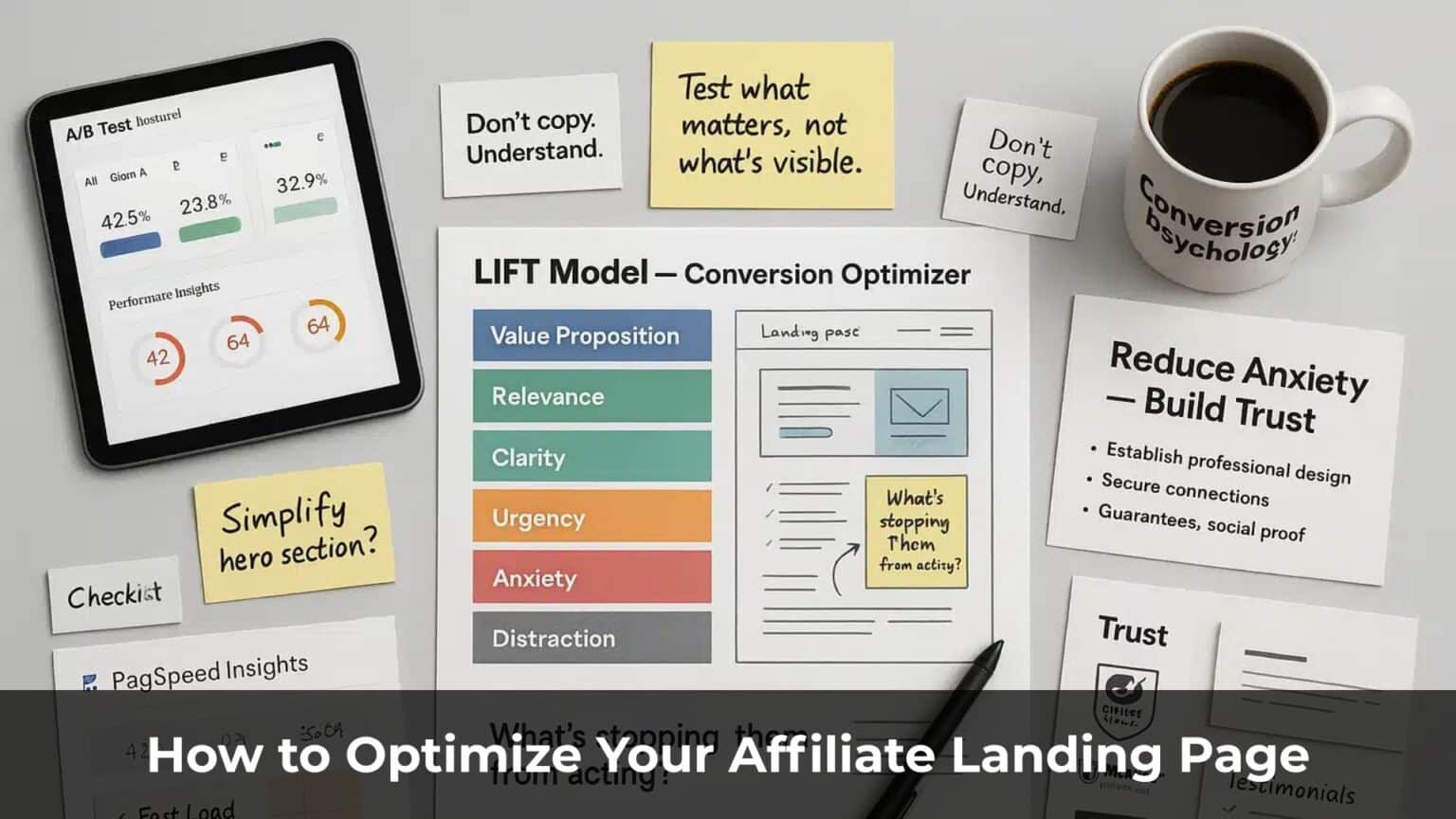Over the years, I’ve had countless conversations with affiliate marketers from all walks of life—newbies, veterans, and everyone in between.
One thing that stands out?
Most people who quit affiliate marketing too soon weren’t defeated by bad traffic or low commissions. They were held back by the wrong mindset.
We live in a digital world flooded with advice. Forums, YouTube videos, Facebook groups—they’re all shouting strategies, “hacks,” and “must-do” tactics. But here’s the truth:
Not every piece of advice is meant for you.
Especially when you’re just starting out, it’s nearly impossible to tell the difference between genuinely helpful insights… and noise that does more harm than good.
Worse, some people even post misleading tips on purpose—just to steer potential competitors in the wrong direction.
That’s why in this article, we’re going to cut through the noise.
I’ll walk you through the 9 most common mindset traps that silently sabotage affiliate marketers—and show you how to avoid them so you can build something that actually lasts.
Table of Contents
ToggleMindset Mistake #1: “It’s Too Late to Start Now”
One of the most common beliefs among beginners is this: “The market is already saturated. I’ve missed the boat.”
But that’s completely false.
First of all, advertising platforms are constantly evolving and expanding. Social media is still growing. Native ad networks like MGID and Revcontent are booming, opening new doors to reach massive audiences every single day.
Every year, we see new apps and platforms emerge—each one bringing fresh traffic sources and new opportunities for affiliate marketers who know how to adapt.
The problem isn’t a lack of traffic.
The real challenge is knowing how to use that traffic effectively. And if you’re willing to learn, test, and put in the work, there will always be space for you in this industry.
Second, affiliate marketing naturally filters people out. Many give up too early. They leave gaps in the market—gaps that newcomers can step into and capitalize on.
Every time an affiliate quits, they leave behind their traffic, their audience, and their hard-earned insights… waiting to be rediscovered by someone else.
Here’s the truth: affiliate marketing is still expanding—and it’s not slowing down anytime soon.
In fact, forecasts project that the industry will grow by another $6.8 billion over the next five years. That’s not a dying opportunity. That’s momentum.
Personally, I started my journey in 2017. And yes—I thought I was late too.
But time has proven one thing: as long as you’re willing to grow, it’s never too late to start.
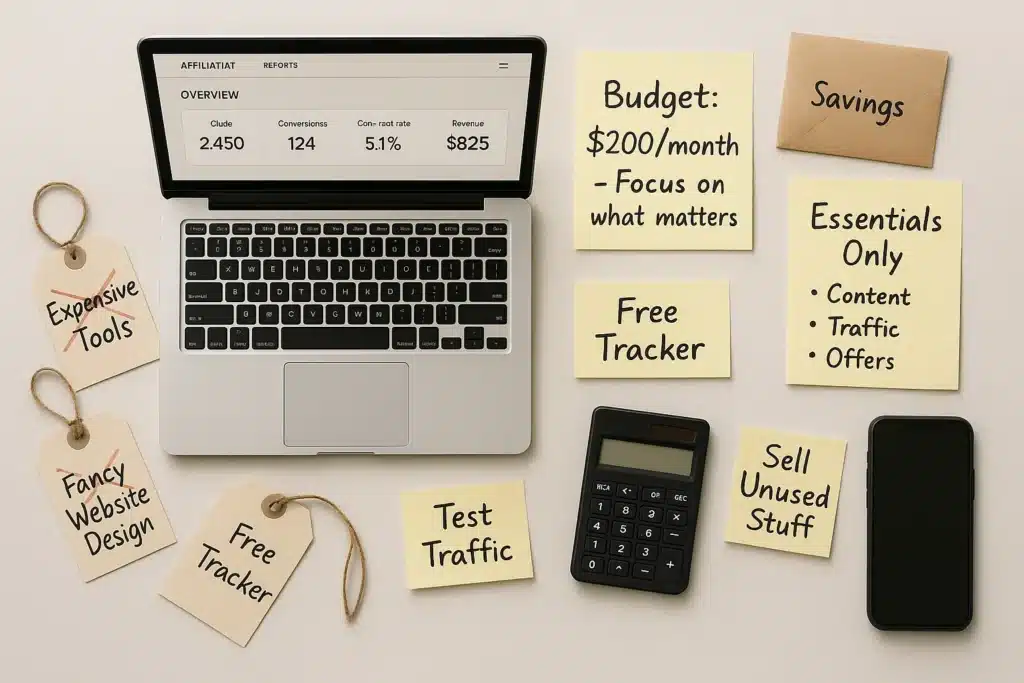
Mindset Mistake #2: “You Need a Lot of Money to Start”
One of the biggest misconceptions in affiliate marketing is this:
“You need a huge budget to even get started.”
That’s simply not true.
Want to know how much I started with?
Just $200 a month.
What matters most isn’t how much money you have — it’s how well you use it. Even with a modest budget, you can make real progress if you manage it wisely and stay focused on what truly moves the needle.
You can kick things off by saving up, selling stuff you no longer use, or cutting a few unnecessary expenses from your daily life. It’s not easy, but it’s absolutely doable.
In fact, working with a tight budget can be a hidden advantage. It forces you to zero in on what actually matters in your campaign — instead of wasting money on shiny distractions.
“All you need is a computer with internet access, and you can build anything — even a billion-dollar company.”
— Mark Cuban
In the beginning, focus your money on the essentials: a solid tracking tool and ad spend to test offers. Everything else — tools, automation, fancy landing pages — can wait until you’re profitable.
And these days?
You don’t even need to spend much on tracking tools. There are several platforms offering free or low-cost tracking software that are good enough to get started and test your first campaigns.
Mindset Mistake #3: “You Need a Personal Mentor to Succeed”
Here’s something I hear all the time from beginners:
“I can’t start affiliate marketing until I find a mentor or hire an expert to guide me.”
Sounds reasonable, right? But the truth is: you don’t need a personal coach to get started.
Yes, having access to a seasoned expert is valuable. We all want guidance from someone who’s been through the trenches and found success.
But when you’re just starting out, you don’t need to pay hundreds (or thousands) of dollars for a one-on-one mentor.
Today, there are countless free, high-quality resources available — if you’re willing to dig. Blogs like this one, Affiliate World forums, and other online communities are packed with insights, case studies, and step-by-step guides.
If you do want advice, start by engaging with the affiliate community — locally or online.
Ask smart, specific questions. Show that you’re serious. And most importantly: give value back whenever you can.
Here’s the key point:
You don’t need a “guru” to help you sign up for a traffic source, choose an affiliate network, or launch your first campaign.
All of that, you can figure out on your own — if you’re willing to be resourceful and proactive.
And honestly?
If you’re still asking questions like “How do I start?” or “Which tracker should I use?”, that tells me you haven’t done the basic research yet.
This game rewards initiative. So take the time to learn, explore, and prove — to yourself and others — that you’re serious about this journey.
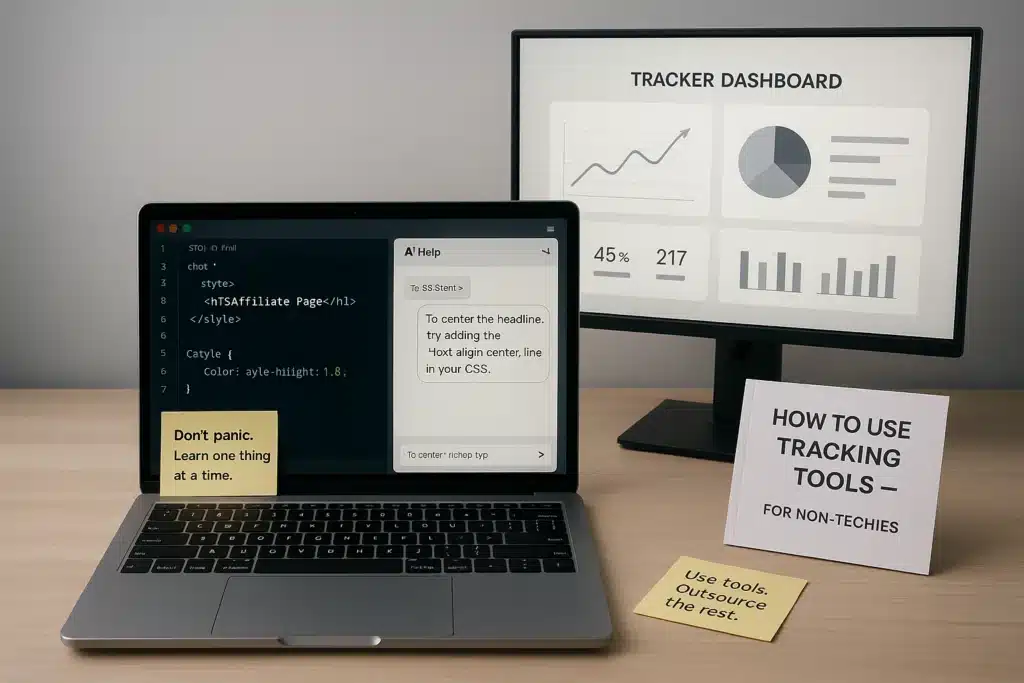
Mindset Mistake #4: “You Need to Be a Tech Wizard to Do Affiliate Marketing”
A lot of people hold back because they think affiliate marketing requires advanced tech skills — like coding, web development, or handling complex backend systems.
Let me be clear: that’s not true.
Personally, I’m not a tech expert.
When I first started, I only knew some basic HTML and CSS — just enough to tweak landing pages and troubleshoot simple issues.
And guess what?
Those skills were easy to learn.
There are tons of free tutorials online that’ll walk you through everything step by step — no computer science degree needed.
Sure, tracking tools might feel a bit overwhelming at first. But after a few test campaigns, you’ll get the hang of it. They’re designed to help, not confuse you.
Still feel stuck? You can easily hire freelancers or part-time tech support to handle the heavy lifting. Platforms like Upwork and Fiverr are full of affordable pros who specialize in exactly this kind of work.
And with today’s AI tools, you can learn faster than ever — or even have AI write code and build landing pages for you. You just need to know what you want, and the AI can do the rest.
For example, I only know how to insert tracking scripts and recognize if someone’s trying to steal my traffic. Everything else? I outsource — and it works just fine.
Here’s the truth:
You don’t need to master everything. You just need to know what matters, use the right tools, and delegate the rest.
Focus on what you do best — and let the tools and people around you fill in the gaps.
Mindset Mistake #5: “You Have to Live in a First-World Country to Succeed in Affiliate Marketing”
This is a mindset that still holds a lot of people back:
“If I don’t live in a developed country, I’ll never succeed in affiliate marketing.”
That couldn’t be further from the truth.
There are thousands of successful affiliate marketers from developing countries like India, Indonesia, Nigeria, and beyond — proving every day that your location doesn’t define your potential.
What matters isn’t where you live — it’s how well you use the resources you have.
For example:
If you live in a lower-cost country, you actually have an advantage — you can run campaigns in Tier 3 markets where ad costs are much cheaper and competition is lower.
There’s no need to burn your entire budget trying to compete in expensive markets like the US, UK, or Australia — especially when you’re just starting out.
Running campaigns in regions with cheaper CPCs can help you stretch your budget, gather valuable data, and build experience without going broke.
And if you speak the local language? That gives you a major edge — you’ll understand the audience better and write copy that actually converts.
Always remember:
The real difference isn’t your passport — it’s your mindset and your execution.
Don’t blame your country. Don’t blame your circumstances.
Affiliate marketing doesn’t care about borders — it rewards action, creativity, and perseverance.
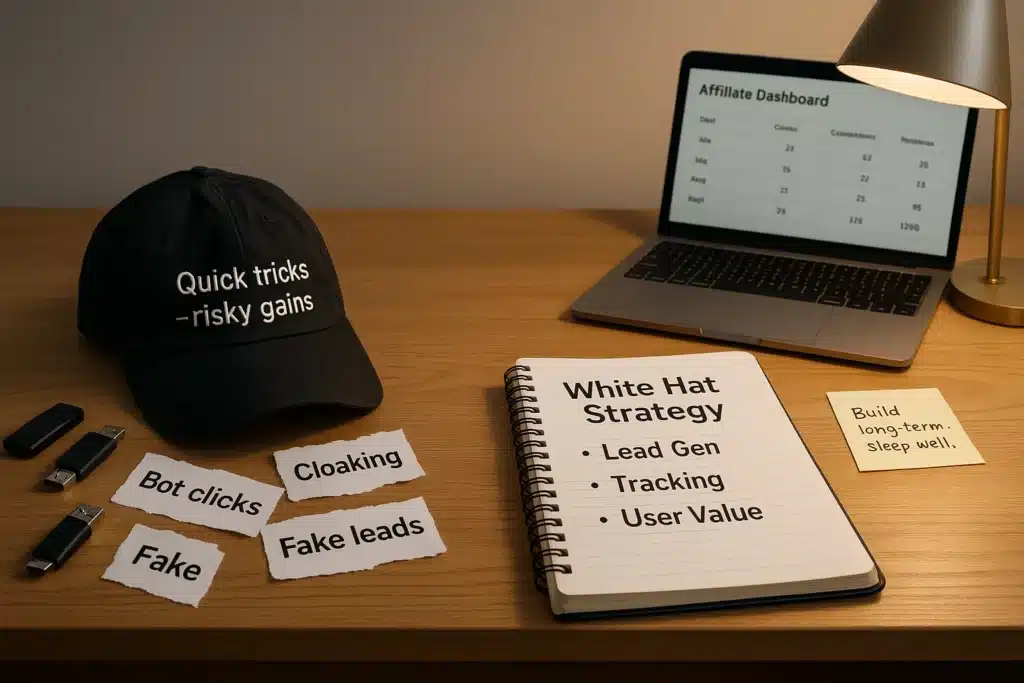
Mindset Mistake #6: “You Have to Cheat or Use Black-Hat Tricks to Make Real Money”
There’s a common belief among beginners that the only way to make serious money with affiliate marketing is by cutting corners — using shady tactics, misleading ads, or straight-up black-hat techniques.
That belief is dead wrong.
I personally know some of the top affiliate marketers in the world — and they’ve built their success on transparent, ethical, and fully compliant strategies.
The truth is, there are plenty of profitable “white-hat” niches that can earn you thousands of dollars a day — without ever needing to deceive anyone.
Sure, black-hat marketers exist.
Yes, some people use tricks and loopholes to make a quick buck.
But in the long run, that’s a race to the bottom.
Campaigns get shut down. Accounts get banned. Reputations get burned.
You get to choose your path.
And there’s a smarter way:
Affiliate marketing offers dozens of sustainable, high-paying verticals — like app installs, eCommerce, lead generation, gaming, and other fully legit offers.
You don’t need to trade your ethics — or your peace of mind — for success.
You can build something real.
You can sleep well at night, knowing your income is built on transparency, value, and skill.
And trust me — that kind of success lasts a whole lot longer.
Mindset Mistake #7: “Affiliate Marketing Is Too Competitive to Be Profitable”
A lot of beginners shy away from affiliate marketing because they think it’s too crowded or too competitive to make any real profit.
But that mindset is completely off.
High competition is actually a sign of a profitable market.
Think about it:
If there weren’t money to be made, why would giant companies keep pouring billions into hyper-competitive industries like music streaming or online TV?
They do it because the potential for revenue is massive — and they want a piece of it.
Affiliate marketing works the same way. Yes, some traffic sources are competitive. But if you’re smart — if you’re willing to learn, test, and optimize — you can survive and thrive in this space.
Here’s the truth:
Competition is a good thing.
It filters out the lazy, the short-term thinkers, and those who aren’t truly committed.
And when those people drop out?
They leave room for serious marketers — people like you — to grow, scale, and dominate.
So don’t fear competition.
Embrace it.
It’s a clear signal that you’ve entered a market worth playing in — and winning.

Mindset Mistake #8: “Successful Affiliate Campaigns Are Just About Luck”
Some people still believe affiliate marketing is a game of pure luck.
They think successful marketers just got lucky — they picked the right offer, used the right traffic source, or stumbled upon the perfect keywords.
But that’s not how it works.
Sure, every now and then, someone gets lucky and hits a profitable campaign on their first try.
But let’s be honest — those cases are rare. And even rarer is repeating that kind of “luck” consistently.
Affiliate marketing is a game of testing, learning, and optimizing.
Long-term success doesn’t come from gambling — it comes from data-driven decisions, strategic adjustments, and relentless refinement.
If you know what you’re doing, there’s almost always a way to turn a losing campaign into a profitable one.
Not by hoping… but by improving your targeting, testing new angles, refining your landing page, or adjusting your bids based on real numbers.
Now, don’t get me wrong — luck does play a small role.
You’re lucky to have discovered affiliate marketing in the first place.
You’re lucky to be part of an industry that offers limitless earning potential while most people are stuck in 9-to-5 routines.
But depending on luck is not a strategy.
As Thomas Jefferson once said:
“The harder I work, the more luck I seem to have.”
It’s skill, persistence, and smart execution that separate top affiliates from the rest — not magic or blind chance.
Mindset Mistake #9: “You Need Connections or Street Smarts to Make It in Affiliate Marketing”
Some beginners believe they need a powerful network or slick street smarts to succeed in affiliate marketing.
But that’s not true — especially when you’re just starting out.
Affiliate marketing is an open playing field for anyone who’s willing to learn and take action.
You don’t need insider connections or smooth-talking skills to launch your first campaign.
Those things can help later on, but they’re absolutely not prerequisites.
What you do need in the beginning is simple:
The willingness to learn.
Start by educating yourself with free guides, quality blog posts, YouTube tutorials, or entry-level courses.
Then get your hands dirty. Run a campaign. Analyze the results. Nothing beats real-world experience.
Now, networking does matter — especially in the long run.
Building relationships in this industry can give you major advantages, like:
- Learning from other marketers’ real-world experience
- Staying ahead of trends before they go mainstream
- Discovering winning strategies from top performers
But here’s the thing: real relationships take time.
They’re built on mutual respect, honesty, and a genuine desire to learn — not flashy talk or shortcuts.
Another thing that will fast-track your progress?
Choosing the right affiliate network.
A good network doesn’t just offer great payouts — they provide technical support, fast payments, and valuable insights to help you optimize.
In other words, you don’t need to “know the right people” to win in this game. You just need to take the first step, stay consistent, and work with partners that want to see you succeed.
Final Thoughts
Letting go of these mindset mistakes is essential if you want to enter affiliate marketing with confidence and clarity.
These false beliefs are exactly what hold so many people back — causing them to miss out on life-changing opportunities.
The affiliate industry is becoming more transparent, accessible, and legitimate every year — opening the door to real profits for anyone willing to step in and play smart.
Success here isn’t some mysterious formula.
If you equip yourself with the right knowledge, stay hungry to grow, and take consistent action — you will start seeing results that match your effort.
